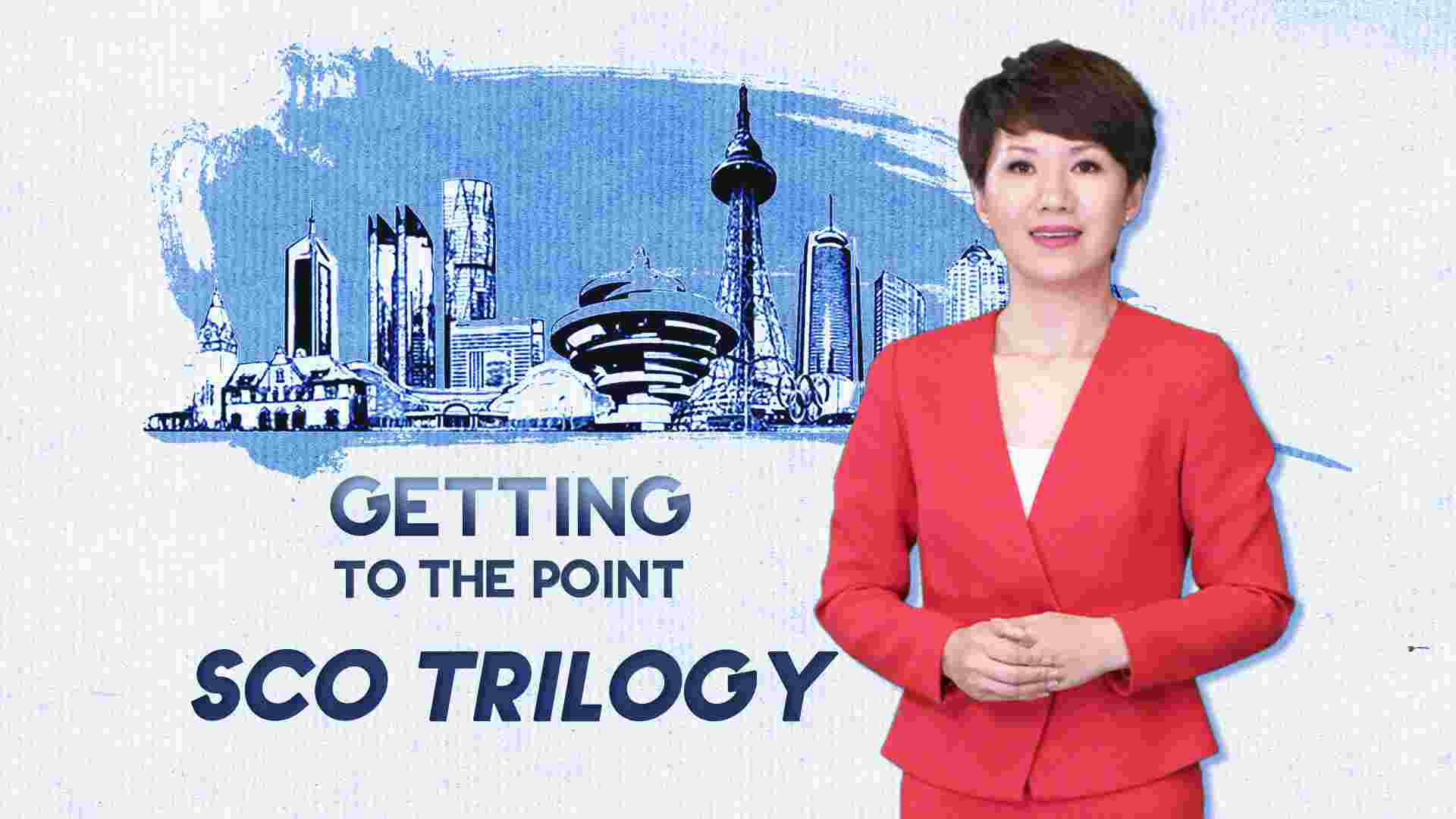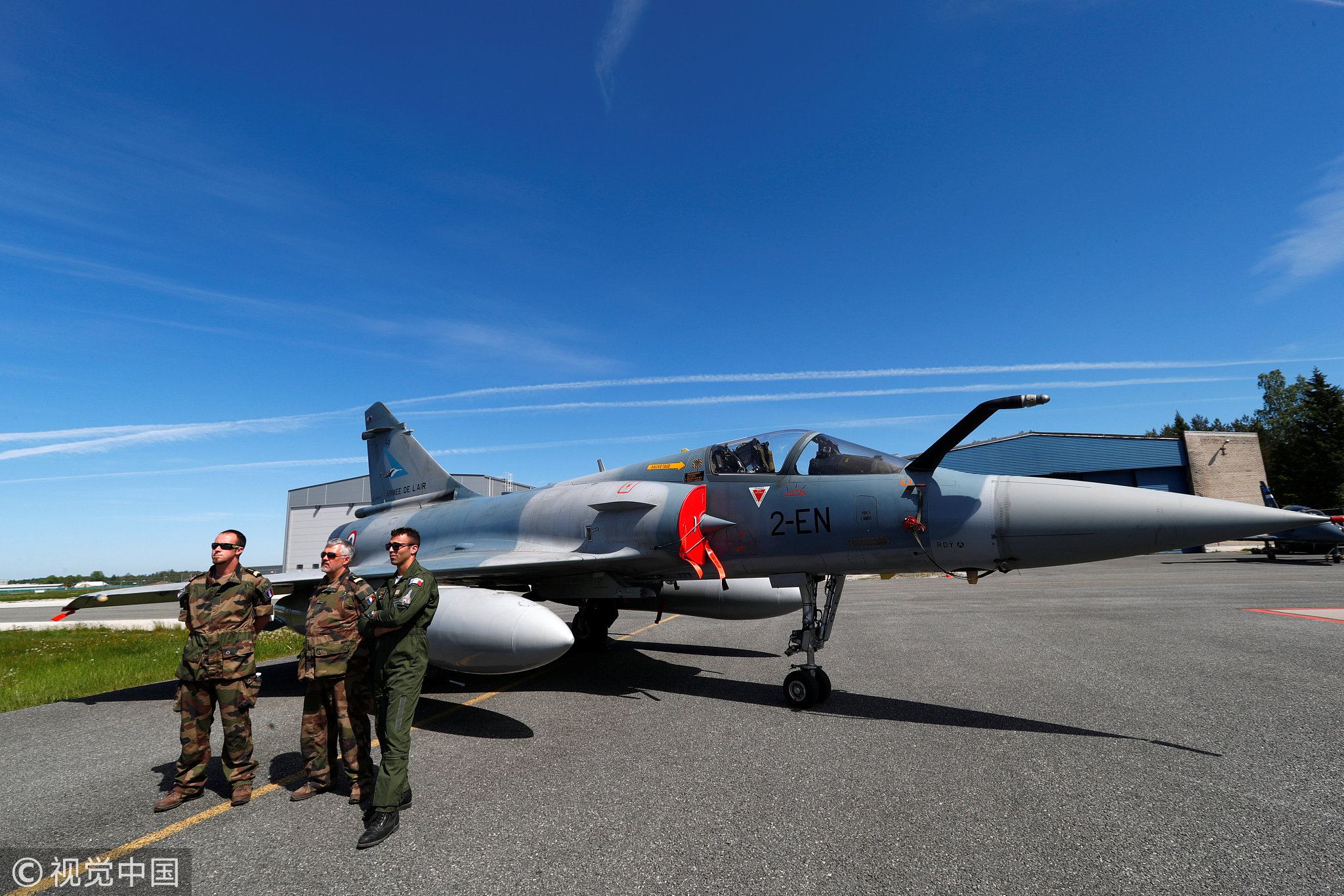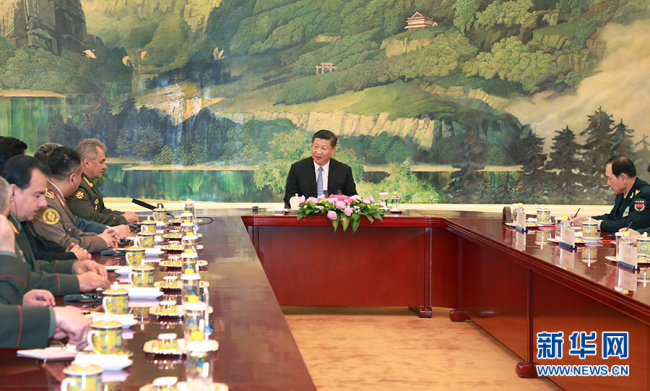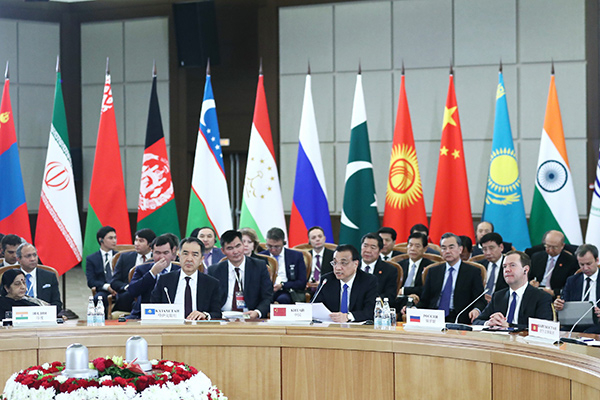
Opinions
11:05, 07-Jun-2018
SCO Trilogy: Is the SCO the NATO of the East?
By Liu Xin
04:59

The Shanghai Cooperation Organisation (SCO) brings China and Russia together with four Central Asian countries – Kazakhstan, Kyrgyzstan, Tajikistan and Uzbekistan – and two South Asian countries: India and Pakistan.
The group also has four observers: Mongolia, Iran, Afghanistan and Belarus; and six dialogue partners: Turkey, Sri Lanka, Nepal, Cambodia, Azerbaijan and Armenia.
Although the SCO has repeatedly stressed it is not a military alliance with treaty obligations, concerns persist: Is the SCO a NATO of the East, disguised under a veil labeled “cooperation”?
Let me try to answer this question from three aspects.
First of all, the SCO was set up to be what NATO was not.
The founding members, namely China, Russia and three of their Central Asian neighbors, wanted to create a new type of international organization, one that was not based on zero-sum thinking and hegemony, but cooperation and respect for diversity.
Members do not have to cede their sovereignty for protection. Members do not interfere in each other’s internal affairs. Decisions are made only through consensus, instead of by majority, which is the case with NATO.
There is no such thing as collective defense within the SCO, a fundamental difference from NATO, as encompassed under its famous Article 5.

France's Air Force specialists gather near the Mirage 2000-5 fighter during the NATO Baltic Air Policing Mission in Amari military air base, Estonia, May 25, 2018. /VCG Photo
France's Air Force specialists gather near the Mirage 2000-5 fighter during the NATO Baltic Air Policing Mission in Amari military air base, Estonia, May 25, 2018. /VCG Photo
There is no such thing as an SCO force where member countries contribute their troops – another major difference with NATO, which has been beefing up its defense forces in recent years.
NATO is the product of the Cold War. It has an imaginary enemy: the socialist camp led by the Soviet Union. Since it came into being, NATO has repeatedly taken offensive acts, which means it is not the defensive organization it claims to be.
Secondly, China’s leadership has repeatedly enunciated it does not wish to forge any military alliances with other countries or establish a sphere of influence.
For the past 18 years, the Shanghai Spirit, the bedrock of the SCO, has been upheld. This philosophy stresses mutual trust, mutual respect, equality, respect for diverse civilizations, and the pursuit of shared development.
During the upcoming summit in Qingdao, the Shanghai Spirit is to be reiterated, highlighting the continued direction of the group.

Chinese President Xi Jinping at a group meeting with defense ministers from SCO member countries in Beijing, April 23, 2018. /Xinhua Photo
Chinese President Xi Jinping at a group meeting with defense ministers from SCO member countries in Beijing, April 23, 2018. /Xinhua Photo
The SCO will not seek confrontation or fabricate an enemy to keep itself alive and relevant. The organization seeks cooperation for common security and development among its members, as well as with the West.
This outlook is stipulated in China’s proposal for a new model of relations among countries, based on promoting mutual respect and building a human community of shared future.
Finally, the diversity within the SCO makes it unlikely that the group would ever become a military alliance.
Unlike NATO members, who share great commonality in political systems, religious beliefs, values, and high threshold requirements, SCO members are diverse. And that diversity is an asset, not a liability.

Dec. 1, 2017: Chinese Premier Li Keqiang attends the 16th meeting of the Council of the SCO Heads of Government (Prime Ministers) in Sochi, Russia. /Xinhua Photo
Dec. 1, 2017: Chinese Premier Li Keqiang attends the 16th meeting of the Council of the SCO Heads of Government (Prime Ministers) in Sochi, Russia. /Xinhua Photo
It is also worth noting that some SCO members are long-time rivals, namely India and Pakistan. The fact these two countries can co-exist within the same organization can be attributed to the high level of tolerance within the SCO.
It’s unimaginable that India and Pakistan would agree to send soldiers to fight any third party when they are still in conflict with each other over disputed areas.
Which leads to the next question about the SCO: Why would it accept two new members which have been at odds with each other for decades? Is this a manifestation of the group’s larger geopolitical ambition?
I will explain in the next and final episode of this SCO Trilogy. I’m Liu Xin. Follow me on Facebook or Twitter using the handle @thepointwithlx. Thanks for watching.

SITEMAP
Copyright © 2018 CGTN. Beijing ICP prepared NO.16065310-3
Copyright © 2018 CGTN. Beijing ICP prepared NO.16065310-3